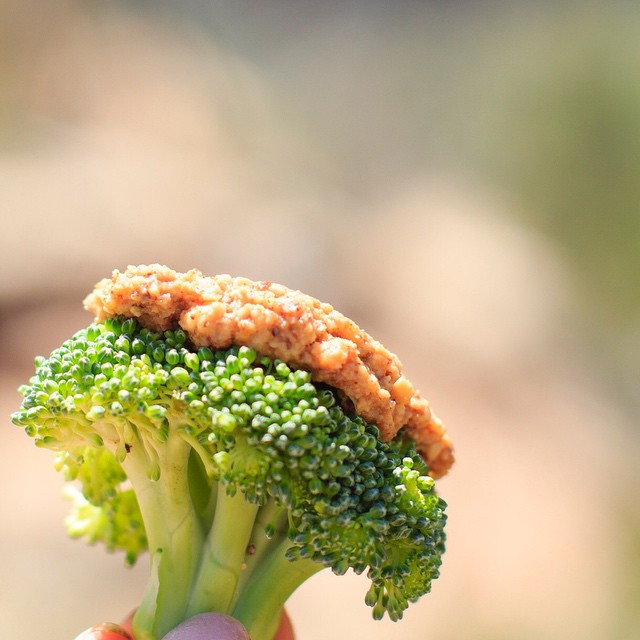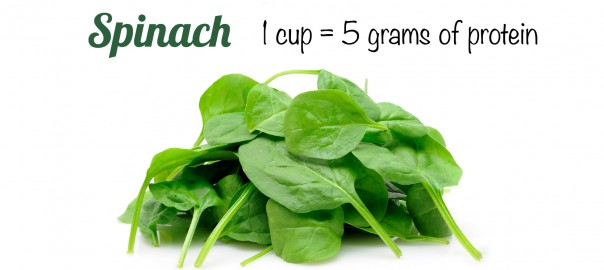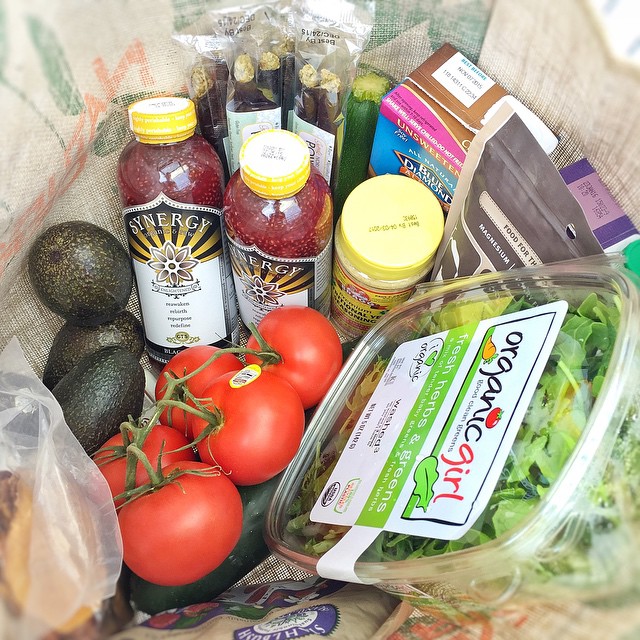Here’s a fun and important topic I want to share with you. I’m always asked, “Where do you get your protein on a raw vegan diet?”

Answer: The same place elephants, bulls, and buffalos get their protein — from eating plants. See, we have been misguided and programmed to believe that the only source of protein is from meat — aka, animal tissue. But in reality, plant-based foods contain plenty of extremely high-quality protein that is actually easier for your body to digest and assimilate. The reason they are higher quality is simple: Plant proteins are found inside plant cells, the walls of which are made of the rigid material we call fiber. Fiber passes through our system in a nice, orderly fashion, giving us healthy, regular bowel movements. In contrast, animal proteins are inside of animal cells, the walls of which are made of cholesterol, which our bodies aren’t well-equipped to break down. It coats our gut with grease, making absorption difficult. It constipates us. And when absorbed into our blood, cholesterol makes our blood thick, clogs our arteries, and kills more Americans than anything else. By eating a variety of plants in your diet, including plenty of greens, it is very easy to get 100% “complete” protein, meaning all 8 essential amino acids are present in abundance.
Furthermore, heat damages proteins, causing the amino acid chains to congeal. Damaged protein is for the most part unusable and can be harmful to your body, causing inflammation and other problems. When food is cooked above 118 F, essential nutrients like vitamins, minerals and enzymes are lost. Amino acids, the building blocks of protein, begin to deteriorate at that temperature and are completely destroyed at 160 F. Too much protein in your body actually causes harm, but you almost never hear about that. It harms your digestive tract, your kidneys and much more by making your system too acidic. For those of you who think eating a high protein diet aids in weight loss, take note: The American Cancer Society conducted a study over a 10-year period with nearly 80,000 people trying to lose weight. Participants who ate meat three times a week or more gained substantially more weight than those who avoided meat and consumed more vegetables. And studies published in the Journal of Clinical Nutrition and the New England Journal of Medicine found that meat-eaters are much more likely to be overweight than vegetarians. Not to mention much less healthy.

When I was a competitive bodybuilder it seemed that all I ate was meat. A month before competition, it wasn’t surprising to find me throwing down two slabs of ribs in one sitting. Yes, two slabs of ribs! Or, having plain broiled fish or chicken for lunch and dinner. When it was time for snacking, I’d grab a plain chicken breast or a can of tuna fish. Sure, I was getting skinny on my diet, but there were other disturbing things going on with my body. I was in a mental fog all the time. I felt heavy, even though I was in what I thought had to be the best shape of my life. I broke out with acne frequently, especially my face and neck. So I always wondered, what the heck? I’m following my trainer’s guidelines and I’m seeing some improvements, like weight loss, but there were all of these other symptoms, signs that something is wrong, that were prohibiting me from experiencing true optimal health. The protein was taking its toll on my body.
It’s important to be aware of the dangers when eating a high protein diet. The weight loss that occurs on these diets is caused by bodily distress, not healthy living. Protein derived from animal sources is very acidic to the human body and it causes acids to rise in the blood stream. It’s been shown over and over again that excess proteins and acids stress kidneys, too. High protein and fat consumption can contribute to cancer, heart disease, arthritis, kidney and liver problems, and osteoporosis. (Some people ask about eating raw meat. While it’s true the enzymes are intact in raw meat, it introduces a whole host of other issues, most notably, parasite susceptibility. This includes raw fish. Fish is also especially dangerous because so many of the heavy metals that we pollute the ocean with end up in fish flesh, making it very toxic.)
But now the great news! Protein can be found in all natural foods (“natural” as in unrefined). Vegetables and fruits have protein. Nuts, seeds (especially hemp seeds), algae, as well as higher protein greens and sprouts, which have up to 50% of their calories from protein, can satisfy even the higher protein demands of pregnant women, athletes, and people trying to gain lean muscle mass.
More protein is assimilated in Raw foods than in cooked foods. Therefore, the consensus of many leading authorities is that it’s not the quantity that’s important, it’s the quality. When you’re eating fresh, Raw protein sources, your body is able to assimilate the amino acids much more efficiently because they’re not destroyed or denatured by heat. Therefore, you don’t need as much. Raw protein is considered to be more digestible by the human body because the amino acids and digestive enzymes are intact; whereas heavily cooked foods are devoid of these enzymes, making them more likely to sit in the colon and increase the risk of disease. It’s beneficial to your body to eat foods full of enzymes and phytonutrients for better digestion as well as making your body healthier. You’ll see that you don’t have to physically recover from your meals anymore when you’re eating a diet that is high in Raw food.
The world’s longest living cultures, Okinawans and the Hunzas of Pakistan for example (who frequently live to be over 100), consume small amounts of protein, usually making up 20% or less of their diets. Even non-vegetarians should still also add at least 50% Raw foods to their diets. Non-vegetarians often find that they naturally reduce the amount of animal protein they consume once they start eating more Raw foods.
So how much protein does a person need? According to the FDA, it’s about 30 grams per day, depending on your weight and activity level, and even that number is extremely padded. Assume 40-70 grams if you’re very active (e.g., weight training, a marathon runner, etc). The bottom line is to see what works for you. You’ll be amazed at how much more energy you have when you eat a diet high in Raw organic foods such as fresh fruits and vegetables with nuts and seeds, and you’re not bogged down because your body is trying to digest all that cooked and denatured protein.
You don’t have to take my word for it! You can LIVE IT and experience the joy and freedom that come with adopting this why of living.
CLICK HERE——-> and, Join us for the next 28-days living in THE RAW and witness for yourself the power of living this lifestyle.
Have a RAWSome Day!
~Kristie Belliston



